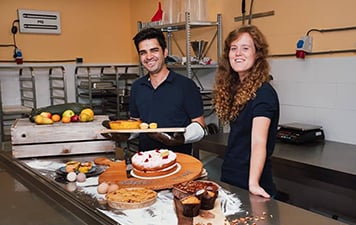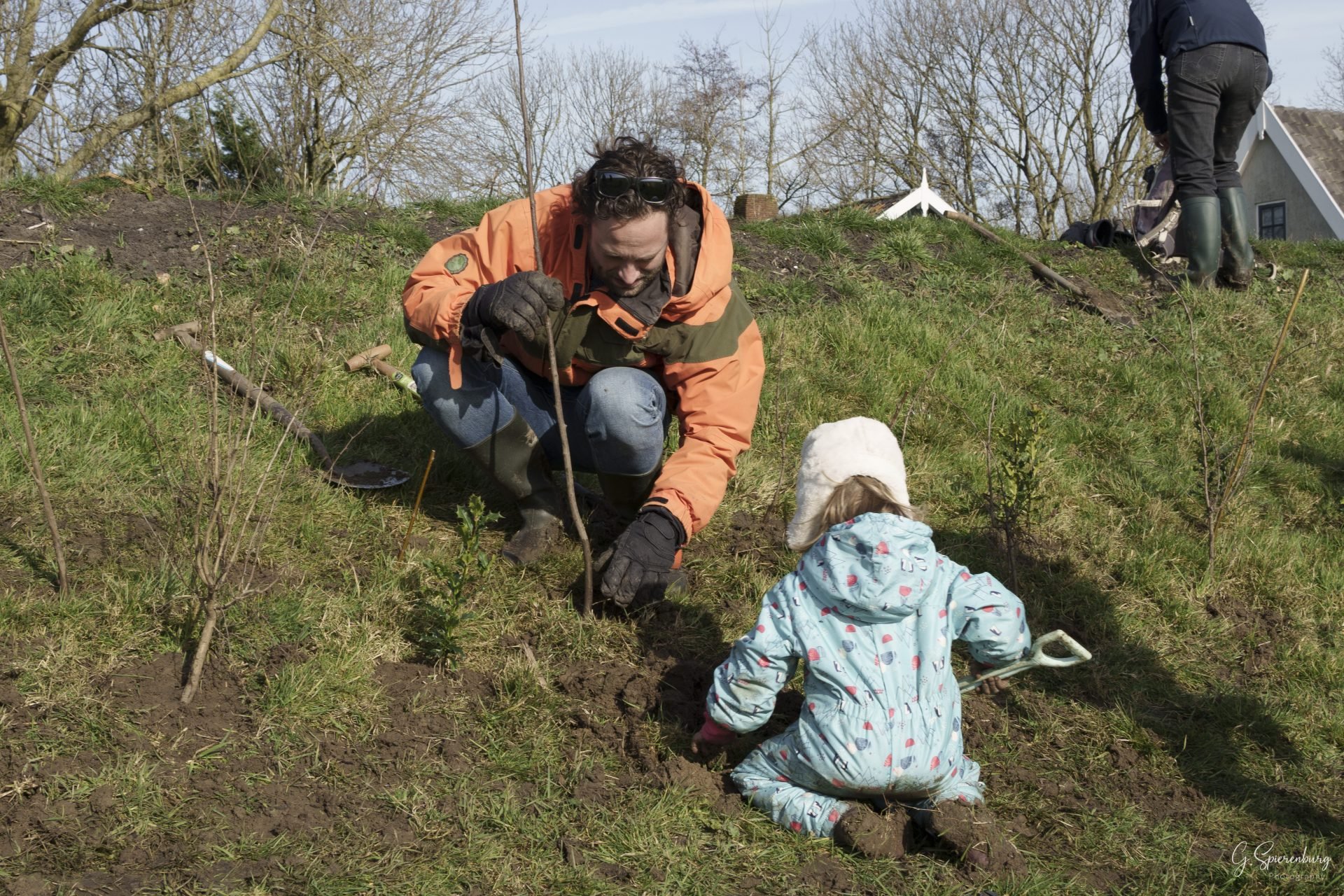Large volumes of valuable raw materials are frequently incinerated with residual waste. This needs to change in order to create a circular economy, completely revising the system of waste and raw material collection in cities. Oscar Circulair is a socially inclusive start-up that aims to change the (business) waste market to save valuable raw materials and make cities waste-free. One of the company’s initiators, Jan Willem van Bokhorst, shares more about how they are doing this – thanks in part to an investment made by DOEN Participaties.
Solving the climate crisis
Jan Willem van Bokhorst and Remco Wagemakers both worked in the cultural sector, Jan Willem as a theatre impresario and Remco as business manager. In 2017, they decided to devote their time, knowledge and energy to helping to solve the climate crisis. They founded a consulting firm and slowly grew to become experts in the field of business waste solutions. When they drafted a proposal to solve the waste problems of the Westergas area in Amsterdam, they came up with a solution that didn’t yet exist. Jan Willem: “We were asked if we’d like to develop such a solution. Because we believe so strongly in the solution, we started working on it in 2019 and founded Oscar Circulair.”
Less waste and transport, more raw materials
In busy urban areas, waste collection creates lots of heavy truck traffic. Also, businesses are not sufficiently stimulated to separate their waste. Oscar Circulair provides centralised collection in these areas, extracts high-quality raw materials from the waste in cooperation with businesses so that less residual waste remains, and ensures that far fewer polluting transport movements are needed in the area. Their employees – called Oscars – collect waste and raw materials twice a day, seven days a week, using electric vehicles. Oscar Circulair leads the field in area-based waste collection. “We now collect 16 different waste flows. Our model ensures that the percentage of residual waste for businesses drops directly from 60% to 30%. We then work together to further reduce the percentage of residual waste,” says Jan Willem.
The Oscar goes to....
According to Jan Willem, the raw material transition to a circular economy can only be shaped through social inclusion. “Personal contact between the Oscars and the people at the associated businesses is essential. It generates involvement and awareness, and increases knowledge about waste management among the employees,” Jan Willem explains. Many of the Oscars are vulnerable in relation to the labour market or have an occupational disability. They find their way to Oscar Circulair through different social partner organisations active in the job market.
No more containers and garbage trucks
Since the Oscars collect waste from the businesses, there’s no longer a need for street containers. Jan Willem: “Because we’ve established a raw materials hub and operate electric vehicles, we save 900 garbage truck a year from having to enter the Westergas area, for example. This reduces emissions and creates a safer, more liveable neighbourhood.” From the hub, everything is transported to sustainable processors that take quality waste flows and residual waste from the city in large volumes. In so doing, Oscar Circulair assesses the mode of transport, the distance the flows will travel and what happens to them afterwards. “We want waste to be processed into semi-finished or new products, enabling us to say to customers: ‘this is what happens to your raw material flow’. We genuinely want to change the system and the market for waste processors and transporters.”
An incentive in the pricing system
To get businesses to use fewer raw materials and separate better at source, Oscar Circulair has also built a price incentive into the model. “With us, better separation saves money. And if – as a business – you reduce the total volume of waste, you pay less. With us, residual waste is more expensive than all other waste flows.”
Investment by DOEN Participaties
It certainly wasn’t easy getting a foot in the door in the highly competitive waste market. “People are willing to do more, as long as it doesn’t cost too much. We want to do the right thing and change the system, but have to compete with companies driven by shareholders and financial goals.” Support from financiers certainly helps in this respect. An investment in 2023 made by a consortium of impact investors consisting of DOEN Participaties, Social Impact Fonds Rotterdam (SIF-R) and the Rabo Foundation will enable Oscar Circulair to expand from Amsterdam and Rotterdam to other cities. What Jan Willem did not expect is that the investment would make it easier to convince other parties. “Because DOEN Participaties invests in us, people know that our company has been properly vetted. That we’re not just building castles in the air.”
DOEN Participaties invests in Oscar Circulair thanks to the players of the Postcode Lottery.


